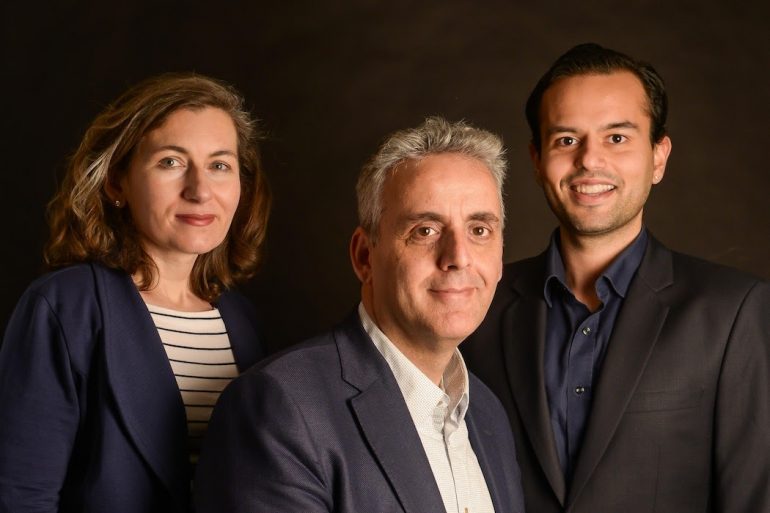Toronto-based Aya, which creates payments solutions and program administration for employee benefits packages, has raised a $3.7 million CAD ($2.9 million USD) seed round of financing.
The round was led by MaRS Investment Accelerator Fund and Luge Capital with participation from Anthemis Group, BDC Capital, StandUp Ventures, and several angel investors. The new funding will be put toward Aya’s customer acquisition strategy, product development efforts, and expansion into the US market.
“We saw so much support, even in the middle of the pandemic, and even before we’d launched the product.”
“We’ve been building and working on the product for the last two years, and the product is ready, it’s in great shape,” Chanddeep Madaan, CEO and founder of Aya, told BetaKit. “For us, it’s about how we scale this product and bring sales and marketing and customer support.”
Working at the intersection of FinTech and healthtech, Aya builds payments solutions and program administration for employee benefits packages. The startup was founded in 2018 and raised an unannounced $1.3 million CAD seed round in 2019, which StandUp Ventures and Luge Capital also participated in.
Aya works with healthcare brokers, insurance carriers, and consultant houses to onboard employers and load money on behalf of employees onto Health Spending Accounts (HSA) and Wellness Spending Accounts (WSA).
A WSA is a taxable benefit provided to employees by employers to spend on such purchases as personal training, gym memberships, childcare, and education fees. An HSA is a Canada Revenue Agency-approved method to provide medical, dental, and vision benefits in a tax-efficient manner. A corporation can write off 100 percent of the costs related to its HSA and all expenses are tax-free to the employees.
League is another Toronto-based startup that operates in the same space, allowing employers to customize their benefits plans for employees through an online platform. Madaan differentiated Aya from League arguing that Aya is not seeking to disrupt the broker’s relationship with the employer and go direct, rather it works with brokers and carriers.
RELATED: Loblaw partners with League to launch new health-focused app
Aya’s platform allows employees to make payments through HSAs and WSAs through a physical and virtual Mastercard. The aim of the technology is to eliminate the need for employees to pay out-of-pocket and submit complex expense claims.
Aya already has partnerships with three brokerage firms: Sterling Capital Brokers, PACE Consulting Benefits & Pensions, and Lawrie Insurance Group, which offer Aya’s product suite to their customers. The startup hopes to close three more brokerage partnerships by the end of 2020.
The CEO told BetaKit Ontario Teachers’ Insurance Plan submitted a letter of intent to Aya earlier this year to offer teachers in the province access to Aya’s payments solutions. Madaan said the company is currently developing French-language capabilities on its platform and plans to move forward with Ontario Teachers once that is complete.
“We saw so much support, even in the middle of the pandemic, and even before we’d launched the product, [with organizations] saying this is a product that they want and that this is a solution that the market needs,” added Madaan. “It was a lot of market validation for both us and our investors to know that this is something that people want.”
Aya was among the startups hit hard by the COVID-19 pandemic. Madaan told BetaKit if the startup stuck to its initial budget presented in 2019, the company would have run out of money by early 2020.
RELATED: Dialogue partners with insurer Canada Life to offer virtual healthcare benefits
Aya’s leadership implemented a 30 percent pay cut for employees and permanently laid off five members of its team. Madaan called this significant, as the team only consisted of around 15 people at the time.
Aya then went on the Canada Emergency Wage Subsidy (CEWS), which the startup is still currently relying on, and received support from the first phase of the National Research Council of Canada (NRC) Industrial Research Assistance Program’s Innovation Assistance Program (IRAP IAP).
“It was very hard and very challenging, and it really tested my leadership and my co-founders’ leadership at that time,” Madaan said. He noted that after cost-cutting for several months, the company was able to extend its runway to October of this year. With the new funding, the startup has been able to extend this even further.
Although Aya has not and does not plan to rehire the laid-off employees, the startup is planning to hire in new roles following the seed round, including in engineering, sales, and marketing. The startup is also gearing up for an expansion in the United States, which it plans to execute starting in the fourth quarter of 2021.
Image courtesy Aya.


